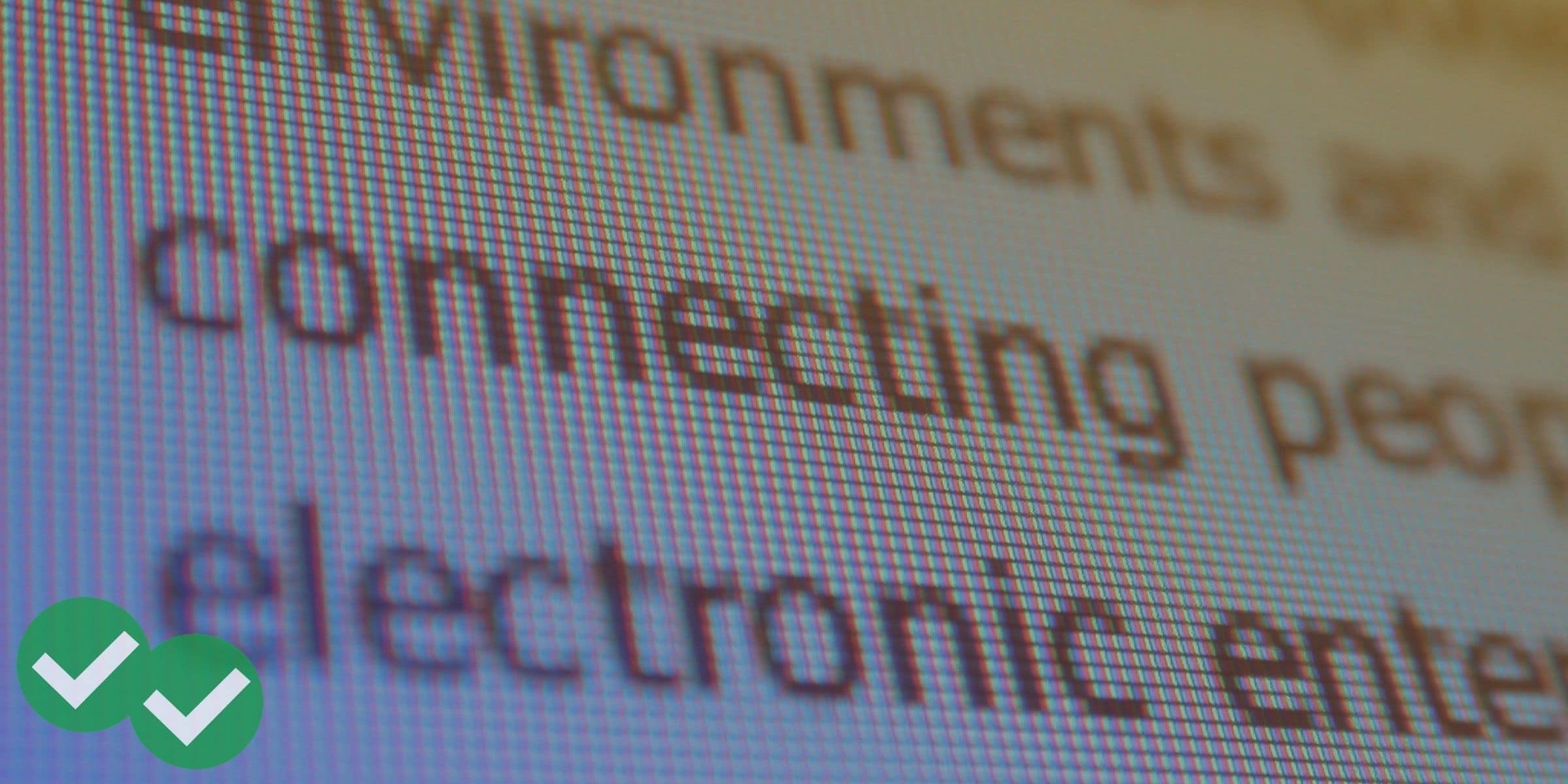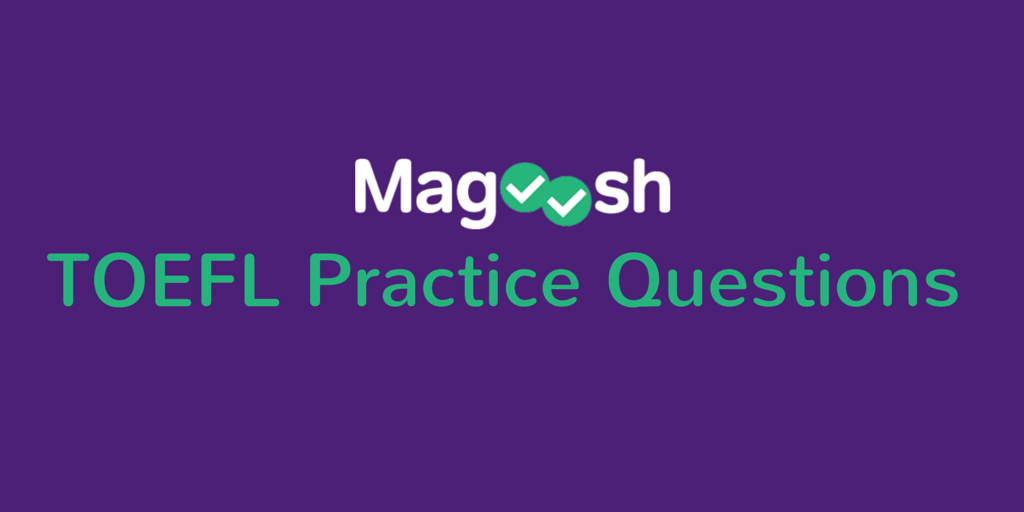
The Educational Testing Service (ETS, the TOEFL test-maker) gives test-takers 10 different types of Reading questions on the TOEFL iBT. The test-maker divides these ten question types into three broad categories according to the kind of skill the question is designed to test. In this post, we’ll go over these different question types, then look at TOEFL Reading strategies you can use to master them. We also created a TOEFL Reading Question Types and Strategies PDF to help you master these question types!
About the TOEFL Reading PDF
This TOEFL Reading Question Types and Strategies PDF contains two passages with mini-question-sets and one full-length TOEFL Reading question set with 10 questions! After you’ve read through the information about categories and approaches below, try out the different types of questions in the TOEFL Reading Question Types and Strategies PDF. And then from there, enjoy one more full TOEFL Reading question set in Magoosh’s bonus TOEFL Reading PDF.
Different TOEFL reading question types can vary in everything from what they test to the number of answer options they have, so let’s break them down! You can also use the Table of Contents below to go directly to a section.
Table of Contents
- TOEFL Reading Question Types and Strategies: Basic Information Skills Questions
- TOEFL Reading Question Types and Strategies: Inference Skills Questions
- TOEFL Reading Question Types and Strategies: Reading to Learn Questions
- A Final Note on the TOEFL Reading Question Types PDF
TOEFL Reading Question Types and Strategies: Basic Information Skills Questions
Basic Information questions are probably pretty similar to what you’ve encountered in other English classes. This type of question is designed to test your ability to understand the words on the page. These questions will almost always begin “In the first/second/third paragraph…” because the answer is always stated in the passage, usually in no more than a sentence or two.
Don’t get fooled into thinking that these questions are easy. Even though the answer is on the page, you may have trouble finding it, or you may find that the question is designed to look easier than it is. Identifying wrong answers can be trickier than you might expect. Basic Information skills include factual information questions, negative factual information questions, rhetorical purpose questions, vocabulary questions, reference questions, and sentence simplification questions.
Here are the basic question types in this category and where you can find them in the PDF for practice!
Factual Information Questions
- #3, p. 16
- #5, p. 17
- #2, p. 24
Negative Factual Information Questions
- # 1, p. 9
- #2, p. 9
- #5, p. 10
- #5, p. 25
Rhetorical Purpose Questions
- #3, p. 24
Vocabulary Questions
- #1, p. 16
- #2, p. 16
- #4, p. 17
- #1, p. 24
Reference Questions
- #7, p. 25
Sentence Simplification Questions
- #6, p. 24
Synonyms Are Your Friend
Imagine if there were no synonyms in English. In that fantasy world, you would find the same words in the text as in the correct answer. You wouldn’t even need to know the meaning!
For example, you might see a statement in the passage like this: “More powerful earthquakes can destroy large portions of cities.” Then an answer choice like this one would probably be correct because it would include so many of the same words: “Large portions of cities can face destruction during powerful earthquakes.”
Wouldn’t that be nice? But sadly, that’s not how the TOEFL works.
In the example above, the actual correct answer in a TOEFL question might look more like this: “Strong seismic activity is capable of leveling vast metropolitan areas.” Notice that there are no words in common between the original text and the answer.
But if you know the meanings of those words in both sentences, you will see that they refer to the same ideas:
- strong = powerful
- seismic activity = earthquakes
- capable of = can
- level = destroy
- vast = large
- portions of cities = metropolitan areas
Well, the equal signs above might be misleading. “Vast” is not the same thing as “large”; synonyms often have different usages. But they do refer to the same basic ideas. And if you know that, then it becomes much easier to answer the question.
Don’t Get Tricked by Matching Words
The Reading section of the TOEFL iBT is even trickier than that, though. Sometimes, the words in the text do appear in the answers. They might appear in the correct answer, or they might appear in the incorrect answer. Synonyms also might appear in either correct or incorrect answers. You cannot simply find a couple of words in common between the text and an answer choice and so decide that the answer choice is correct. You also have to look at the sentence structure. That, combined with the meaning of the word, will lead you to a correct answer.
But none of that is possible if you don’t know the synonyms. That means: A) you should be improving your vocabulary and B) you should look for synonyms between the text and the answer choice, then consider whether the sentences carry the same meaning, depending on the structure and any new words that don’t seem clearly related to the passage.
Sample Question: Basic Information
The paraphrase question comes from the Reading task on pages 10 to 14 of this official TOEFL Quick Prep PDF. Click on the link, and after you’ve read the passage, do question 24 (on page 12). Then we’ll go through the answer choices together.
Remember, synonyms can appear in both right and wrong answers. Still, it’s hard to write a good paraphrase without any synonyms. If an answer to a paraphrase question doesn’t contain synonyms for the original words, there’s a good chance the paraphrase is incorrect.
Show Correct Answer and Explanation
Answer (A) does not contain any synonyms. It is tempting to think “reopened” is a synonym of “opened” from the original sentence. However, “reopened” is simply a different form of the original word “opened,” not a true synonym. “Reopened” also changes the meaning of the passage, implying that the Strait of Gibraltar had been opened before. This idea is nowhere in the original sentence. From “reopened” alone, you can know this answer is probably not right. There are other reasons this answer is wrong, too. Can you find them?
Answer (B) does contain synonyms. “Dramatically” is a synonym for “spectacularly.” “Refilled” is a synonym for “cascaded… back into.” Thus, the phrase “dramatically refilled by water” is a paraphrase of “water cascaded spectacularly back into.” “Are joined” is synonymous with “now connects.” Both phrases describe the linking of the Mediterranean Sea to the Atlantic Ocean. All the information in (B) can also be found in the original sentence. No extra information is added to (B). This could be the correct answer. But does it best express the key information from the highlighted sentence? Let’s look at (C) and (D) to find out.
Like (A), (C) and (D) lack synonyms. All of the keywords in these answers are copied or only slightly changed from the original sentence. This means (C) and (D) might be wrong. But in the TOEFL, even in a Reading Paraphrase question, there are no guarantees. We need to take a closer look at these answers to see if they are truly wrong.
(C) is wrong because it says that the flow of water into the Mediterranean wasn’t as “spectacular” as the adjustments and changes to the Earth’s crust. Nowhere in the original sentence is the spectacular nature of the flow of water compared to the quality of the changes to the Earth’s crust. The changes to the earth’s crust are not described as “spectacular” at all. Furthermore, the “crustal adjustments” caused the Strait of Gibraltar to link the Atlantic and Mediterranean. The adjustments didn’t happen when Gibraltar was already connecting the two bodies of water. To say nothing of the fact that the article talks about an ocean and a sea, not two “seas.”
(D) is similarly incorrect, saying the Atlantic and the Mediterranean became “a single sea” rather than a connected ocean and sea. You can spot this incorrect fact as you check for similes. “Single” is an important informational word that doesn’t appear in the original sentence. It is not a synonym for anything in the original sentence either. So you know the word probably changes the meaning of the sentence.
As you can see, synonym awareness is key to answering this question correctly. To understand a paraphrase, you need to know which words are synonyms and which aren’t. From there, you need to look for words that match the ones in the original sentence. If you find matching words, and make sure they’re being used in the same way. You also need to look for words that don’t match the original wording and are not synonyms. These words likely change the meaning or add information.
TOEFL Reading Question Types and Strategies: Inference Skills Questions
Inference Skills questions require you to use the information in the passage to answer questions that aren’t directly addressed in the passage. One common type of Inference question in the Reading section will imply a change over time, then ask you about the nature of that change. To answer Inference questions, use your skills with synonyms to find a correct restatement of what is in the passage.
Practice this question type in the PDF with the following questions:
- #3, p. 9
- #4, p. 9
- #4, p. 24
Sample Inference Skill Question
“Methanol, or methyl alcohol, although related to ethanol, which is the type of alcohol found in wine, is far more harmful when swallowed, as it breaks down into poison in the body.”
Based on paragraph 1 (the sentence above), which of the following can be inferred about methanol and ethanol?
(A) Of the two types of alcohol, the type that occurs in wine is more widely abused and therefore toxic.
(B) Although only ethanol must be drunk carefully to prevent damage, both types occur naturally in wine.
(C) While methanol is unlike other alcohols, it resembles ethanol closely, except for some differences in toxicity.
(D) Methanol, as opposed to its relative ethanol, does not appear in significant volumes in wine.
Show Correct Answer and Explanation
The correct answer, although not said specifically in the sentence, is D. Methanol must not be in wine—-at least, if there is some, it must only be a small, insignificant amount—because it is poisonous. And we do know that wine is not poison.
Other Inference questions will deal with the author’s implied intentions or opinions and vocabulary items that aren’t defined, but whose meanings are implied in the passage.
the PDF:
Insert Text Questions
- #8, p. 25
Prose Summary Questions
- #9, p. 26
Fill in the Table Questions
- #10, p. 26
A Final Note: TOEFL Reading Question Types and Strategies PDF
Now that you’ve read about the different TOEFL Reading question types, take a look at the TOEFL Reading Question Types and Strategies PDF for TOEFL Reading practice! Here, you’ll see examples of TOEFL questions from each of the categories above. Give our free practice test a shot to see how your new skills translate to test success. Then, if you haven’t already, make sure you check out our online TOEFL preparation course – it includes a lesson video for each of the 10 Reading question types on the TOEFL. Good luck!






